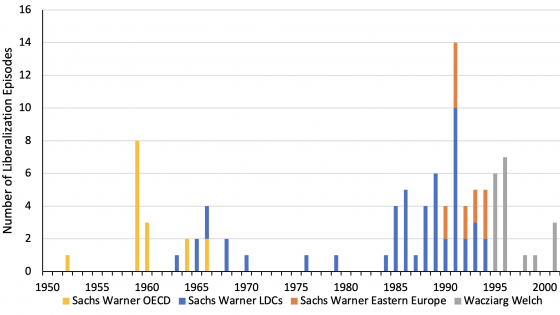Discussion paper
DP5530 Fear of Floating and Fear of Pegging: An Empirical Analysis of De Facto Exchange Rate Regimes in Developing Countries
This paper uses a panel probit model with simultaneous equations to explain the joint determination of de facto and de jure exchange rate regimes in developing countries since 1980. We also derive an ordered-choice panel probit model to explain the causes of discrepancies between the two regime choices. Both models are estimated using simulation-based maximum likelihood methods. The results of the simultaneous equations model suggest that the two regime choices are dependent of each other and exhibit considerable state dependence. The ordered probit model provides evidence that regime discrepancies reflect an error-correction mechanism, and the discrepancies are persistent over time.
£6.00


